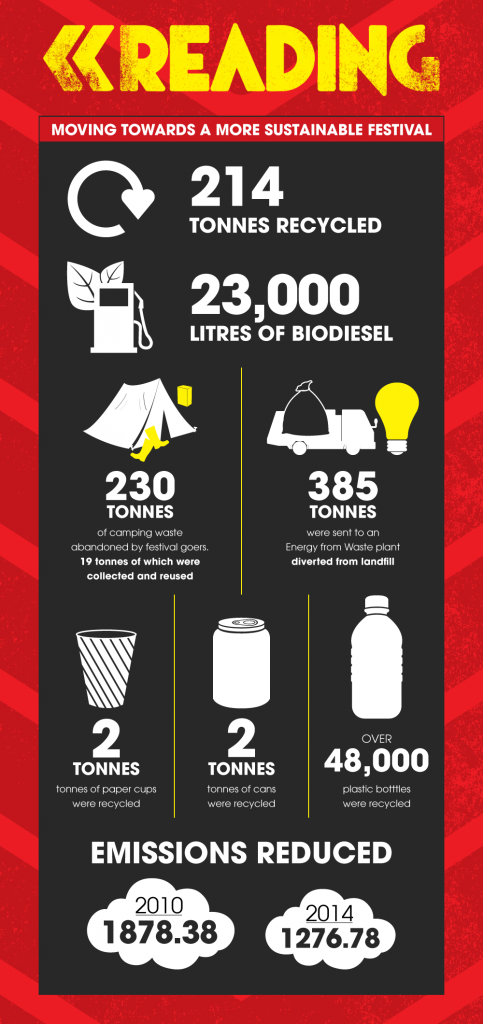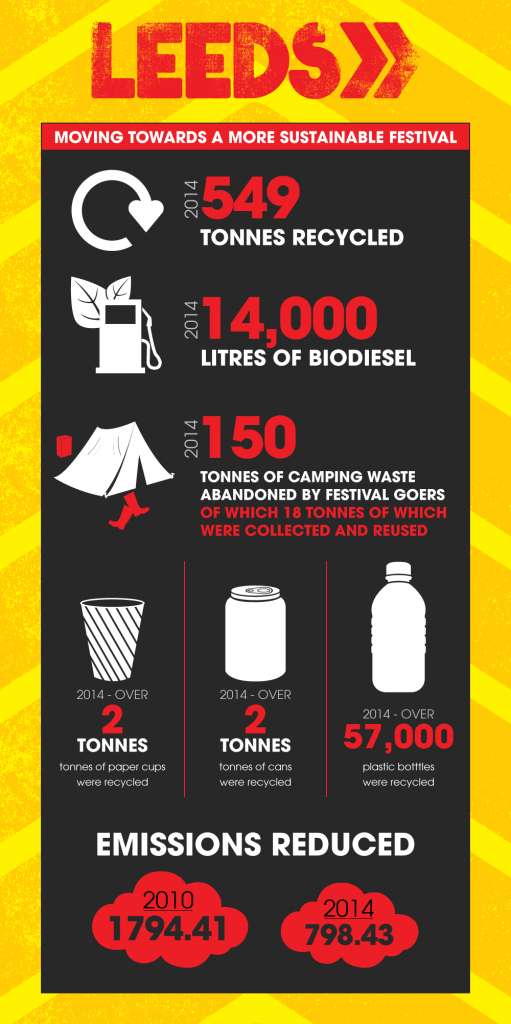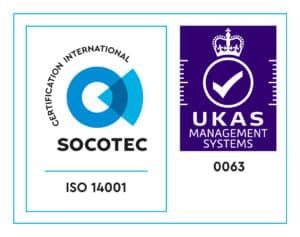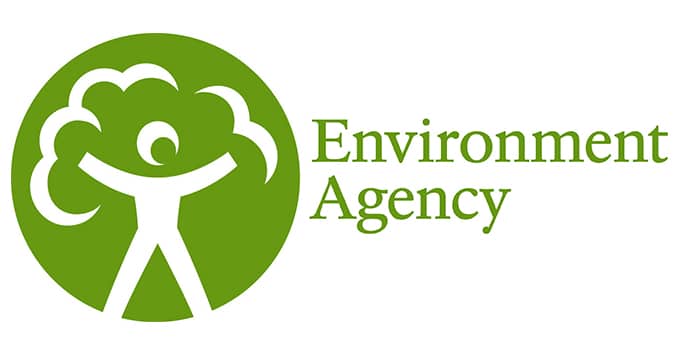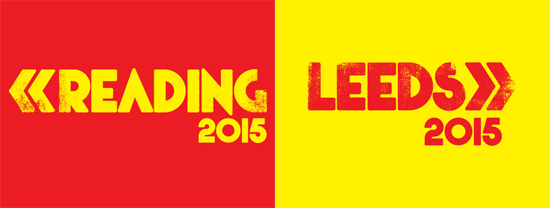
The August Bank Holiday weekend sees the annual Reading & Leeds Music Festival, set across two sites in England. With over 170,000 music lovers in attendance, it has grown to be one of the largest music festivals in Europe. The festival laid down it’s roots in Reading back in 1971, making it the world’s oldest popular music festival still in existence, the second site in Leeds was added in 1999.
With this many music fans attending the amount of waste generated over the weekend is staggering however the festivals have come up with ingenious ideas to help reduce their environmental impact. Now that the music is over for another year and the festival goers make their way home, let’s have a look at what schemes were in place and the facts and figures behind the waste.
Recycling Exchanges
Throughout the sites at both Reading and Leeds there were recycling exchange points based within the camp-sites. When entering the festival a clear bag is given to each person so they can collect their recyclables. For each full bag of recyclables, you received a free Pepsi Max soft drink, perfect as a soft drink… or mixer 🙂
Drink Container Deposits
When you purchased a bottle of water or pint at the festival a deposit on the bottle (20p) or cup (10p) was taken. This encouraged the return of the drinks container and allows for it to be recycled once used. With refund points across the site and even the bar giving refunds, people could easily do their bit and it not cost them anymore money. I wonder if it reduced the famous plastic bottles being thrown in the crowd… or at unpopular acts on stage?
Tent Recycling
After the event, festival goers are encouraged to pack up all their camping equipment and take it home. This enables their reuse and ensures the site can be cleaned and tidied quickly. However, for those who do not want to take their tent home with them for whatever reason there were tent donation points next to the recycling areas. Donated equipment is then reused by community and charitable organisations giving the equipment a second life.
Food Waste
With the amount of people in attendance at the festival food waste is inevitable. Any non-perishable food that was left over was collected and donated to the Salvation Army for those in need in the community and local area. Although food waste is biodegradable and used within energy from waste plants, helping feed the needy is a much better route for the waste.
Waste Facts and Figures
Both Reading and Leeds publish their statistics on their environmental impact and how they manage their waste. With 763 tonnes of waste recycled, what type of waste is handled? They have created the following infographics on the facts and figures from the festivals. Click on the infographics to follow through to the original sources…
If you enjoyed reading this blog post please share with others:

